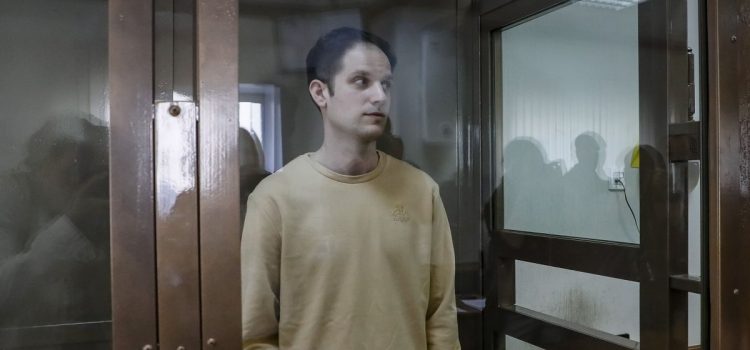
In recent years, geopolitical tensions have surged, and with them, accusations of espionage have become commonplace. One such case garnering international attention is that of Evan Gershkovich, an American journalist facing espionage charges in Russia. This article delves into the background of the case, analyzes the implications of such charges, and provides a comparative assessment of espionage laws and their application in different countries.
The Allegations

Evan Gershkovich, a seasoned journalist known for his coverage of Russian affairs, found himself at the center of a legal storm when Russian authorities accused him of espionage. The charges allege that Gershkovich engaged in activities detrimental to Russian national security, purportedly gathering and disseminating classified information.
Background of Evan Gershkovich
Gershkovich’s career trajectory as a journalist specializing in Russian affairs adds complexity to the case. With a keen interest in Russian politics and society, he has contributed to numerous reputable publications, offering insights into a country often shrouded in mystery for Western audiences. However, his professional pursuits may have inadvertently thrust him into the crosshairs of Russian authorities.
Legal Framework in Russia
Understanding the legal context is crucial in assessing Gershkovich’s case. Russia, like many nations, has stringent laws governing espionage and national security. The Russian government, under various statutes, maintains broad authority to prosecute individuals suspected of compromising state interests through espionage activities.
Implications of Espionage Charges
The ramifications of espionage allegations extend far beyond the individual case. Such charges not only jeopardize the accused’s freedom but also strain diplomatic relations between nations. In the case of Gershkovich, the situation has escalated tensions between the United States and Russia, raising concerns about press freedom and the treatment of foreign journalists.
Comparative Analysis of Espionage Laws
To gain a comprehensive understanding, it is imperative to compare espionage laws across different jurisdictions. While espionage is universally condemned, the interpretation and application of relevant statutes vary significantly. A comparative analysis reveals disparities in legal frameworks, judicial procedures, and the treatment of accused individuals.
| Jurisdiction | Legal Framework | Judicial Process | Treatment of Accused |
|---|---|---|---|
| Russia | Broad statutes with provisions for harsh penalties | Often opaque proceedings with limited transparency | Harsh treatment, including prolonged detention and restricted access to legal counsel |
| United States | Defined statutes with emphasis on due process | Open trials with transparency | Protection of rights, including access to legal representation and presumption of innocence |
Conclusion
The case of Evan Gershkovich underscores the complexities inherent in espionage allegations and their far-reaching implications. As legal proceedings unfold, the world watches with bated breath, mindful of the broader implications for press freedom, diplomatic relations, and the rule of law. Amidst geopolitical tensions, the pursuit of must be tempered with respect for human rights and due process, lest the quest for security trample upon the very principles it seeks to protect.










